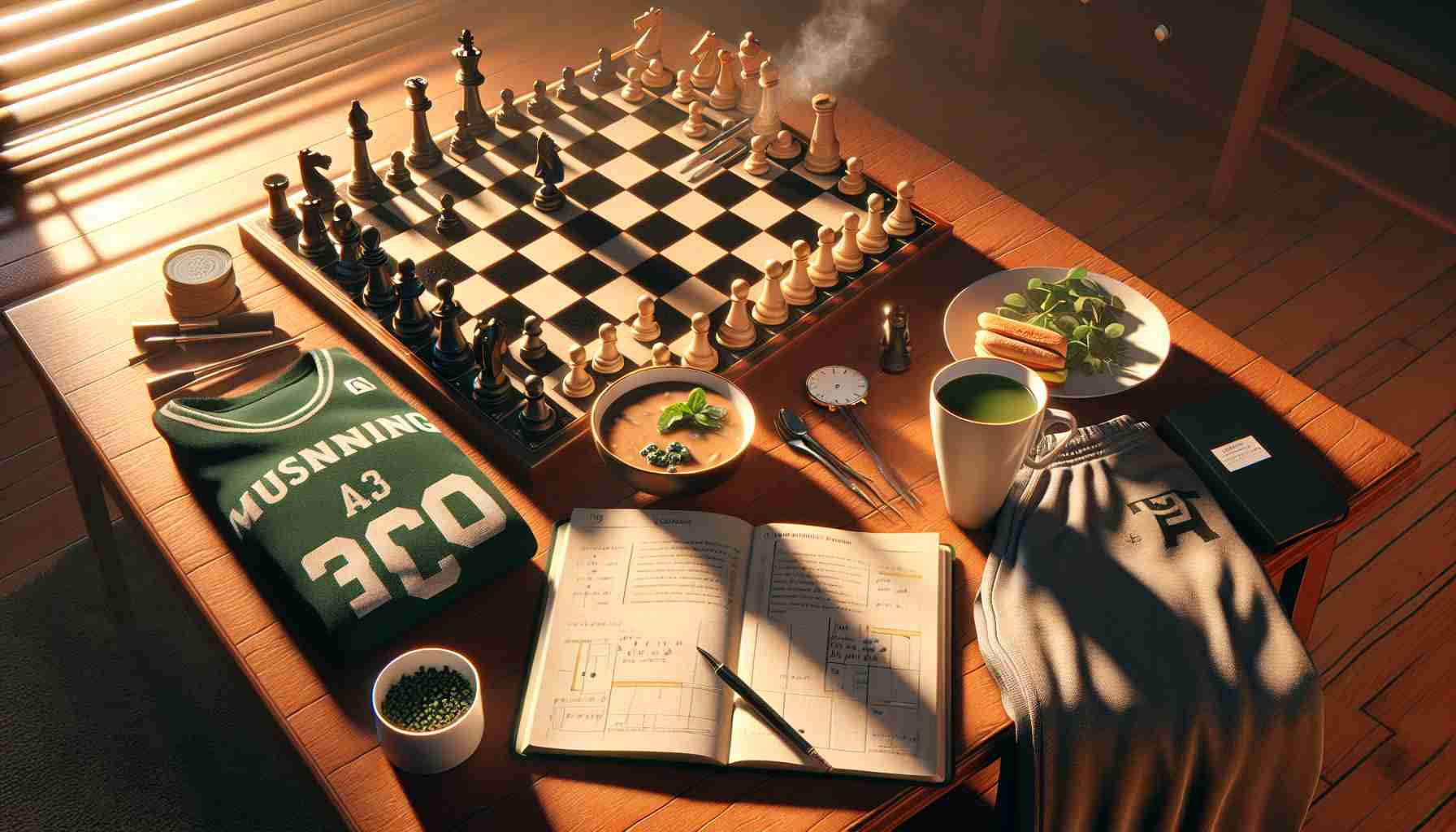In the serene setting of Kakegawa, Shizuoka, a new chapter of the renowned Shogi Championships commenced with a remarkable win. Fujii Sota, the reigning champion at just 22 years old, celebrated his victory in the 74th ALSOK Cup against challenger Takumi Nagase after a grueling match that showcased his strategic prowess.
The day after his success, Fujii joined a traditional morning radio exercise, a community event that invites anyone to participate. There he appeared in a striking red tracksuit, engaging in the popular routine amidst bright blue skies at the iconic Dainihon Hotoku Society, a designated cultural heritage site.
During the event, he posed for photos alongside Shizuoka’s beloved mascot, Kinjiro, and members of the Kakegawa Castle tourism team, dressed as historical figures such as samurai and ninjas. Fujii chuckled as he expressed surprise over the day’s activities, admitting that while he often resorts to online videos to practice, he rarely rises early enough for any morning sessions.
Volunteer group leader, Takashi Ozawa, welcomed Fujii with enthusiasm, sharing his excitement about capturing this memorable moment with the champion. Reflecting on the challenging match, Fujii conveyed satisfaction with his strategic decisions, acknowledging that despite extended moments of struggle, he managed to maintain his position and secure victory.
With newfound energy from the exercise, Fujii looks forward to facing his opponent again in Kyoto at the second match slated for January 25 and 26.
A Champion’s Journey: Fujii Sota’s Remarkable Win and Community Connection in Kakegawa
In the picturesque town of Kakegawa, Shizuoka, the 74th ALSOK Cup Shogi Championships have concluded with an impressive performance by reigning champion Fujii Sota. At the young age of 22, Fujii secured his victory over challenger Takumi Nagase, demonstrating not only his strategic acumen but also his resilience during a prolonged and intense match.
Insights from the Champion’s Victory
Fujii’s triumph adds to his growing reputation in the world of Shogi, a traditional Japanese board game that emphasizes tactical skill and foresight. His approach to the game integrates both historical strategies and contemporary techniques, making him a player to watch in future tournaments.
Community Engagement and Cultural Celebration
Following his victory, Fujii participated in a morning radio exercise, an event that encourages local community involvement. Dressed in a bright red tracksuit, he joined residents in a routine at the Dainihon Hotoku Society, a site recognized for its cultural significance. This engagement reflects Fujii’s commitment not just to Shogi but to fostering community spirit and promoting health through physical activity.
Kakegawa’s Rich Cultural Context
The event was further enlivened by Fujii’s interaction with local tourism representatives dressed in traditional attire. The presence of Kakegawa’s mascot, Kinjiro, added a delightful touch to the morning exercise. Such community festivities highlight the cultural richness of Kakegawa, where tradition meets modernity.
Looking Ahead: Future Matches
Fujii’s next challenge awaits in Kyoto, where he will face Takumi Nagase again on January 25 and 26. This upcoming rematch promises to be a pivotal moment in the championship series, allowing Fujii to showcase his evolving strategies and adaptability.
Pros and Cons of Competitive Shogi
Pros:
– Enhances cognitive skills such as critical thinking and problem-solving.
– Builds a sense of community and tradition through events.
– Raises the profile of the sport, potentially attracting new players and fans.
Cons:
– The high-pressure environment can lead to mental strain for players.
– Competitive nature may deter casual players from engaging with the game.
Shogi Trends and Future Developments
The popularity of Shogi continues to rise, especially among younger audiences, due in part to increased visibility through media and online platforms. Innovations in teaching methods, including digital apps and interactive tutorials, are making the game more accessible to newcomers.
Conclusion
Fujii Sota’s journey is not just about winning titles; it embodies the spirit of resilience, community connection, and cultural pride. As he prepares for his next match, the excitement around his performance and the game of Shogi will undoubtedly inspire many in Japan and beyond.
For more information about Shogi championships and community events, visit [Shogi Association](https://www.shogi.or.jp).
